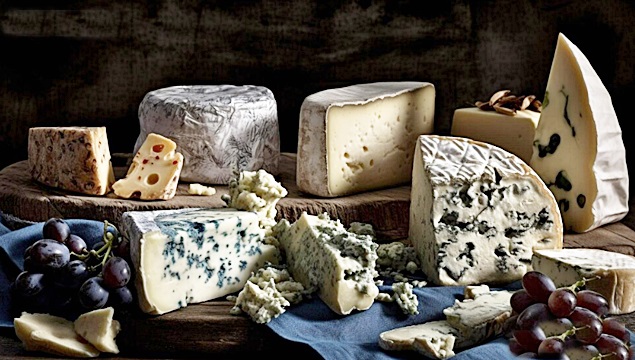1250

U.S. Dairy Groups Clash with EU Over Common Food Names Amid Trade Tensions
By DairyReporter Staff
Trade associations representing the dairy industry are up in arms over the use of common food names such as “feta,” as U.S. and EU officials work to resolve escalating trade tariff tensions.
American Pushback
The U.S.-based National Milk Producers Federation (NMPF) has blamed the European Union’s geographical indications (GI) scheme for the shortfall in U.S. dairy exports to Europe.
The trade body—representing two-thirds of U.S. commercial dairy processing plants—also criticized the EU’s trade agreements with third countries, which it says unfairly protect common food names like “parmesan.”
NMPF’s comments are the latest salvo in a long-standing dispute over the use of common names, emerging at a critical time for U.S.-EU trade relations, as Europe seeks to avert further tariff hikes.
Together with the Consortium for Common Food Names (CCFN) and the U.S. Dairy Export Council (USDEC), NMPF raised the issue in response to the 2025 Special 301 Report, released this week by the Trump administration.
The report highlights key global concerns related to intellectual property rights, including the EU’s GI policies. U.S. trade groups claim the EU’s efforts “restrict the use of widely recognized food and beverage terms to certain European producers, effectively shutting out American suppliers from key markets.”
Gregg Doud, President and CEO of NMPF, stated:
“Last year, the United States imported nearly $3 billion more in dairy products from the European Union than it exported there. The EU’s abuse of its geographical indications system is a major contributor to this trade imbalance.”
A Two-Tiered System
According to Doud, the EU’s GI scheme creates a “two-tiered system” that benefits European producers while eliminating fair competition.
“We appreciate that the USTR is addressing this unfair practice, and we look forward to continued cooperation in leveling the playing field for U.S. dairy producers,” he added.
Jaime Castaneda, Executive Director of CCFN, commented:
“The EU’s approach to GIs is completely unacceptable. It deliberately eliminates fair competition by restricting market access for American and international producers.” “Too many trade partners have been pressured into enforcing trade barriers on products that use common food and beverage names. While we appreciate the U.S. Trade Representative’s ongoing attention to this issue, we urge the U.S. government to prevent trade partners from succumbing to European pressure.”
Europe Under Fire
Krysta Harden, President and CEO of USDEC, added:
“Europe’s misuse of GIs is nothing more than a disguised trade barrier masquerading as intellectual property protection.” “It unfairly denies U.S. producers the right to use widely understood generic terms and significantly limits export opportunities. We welcome the USTR’s engagement and commend the administration’s dedication to safeguarding U.S. market access rights.”
EU Says It Is "Very Open" to Dialogue
In response, Alexander Anton, Secretary General of the European Dairy Association (EDA), told DairyReporter:
“Despite all our efforts in recent years, it is clear we have not yet succeeded in explaining to our U.S. partners the idea and implementation of the European Quality Policy. In many—if not most—other regions of the world, the concept is well received and embraced: it’s about quality, transparency, and yes, supporting local communities in preserving cultural heritage and culinary treasures.”
Anton stressed that the EU’s quality policy in no way impedes U.S. cheese exports around the world:
“That was also one of my takeaways from the ADPI/ABI conference in Chicago earlier this week: U.S. cheese export figures have developed very positively in recent years.”
Regarding EU trade agreements with other regions, Anton noted that the protection of local product names is always approached “with great care, mutual respect, and consensus.”
“This clearly shows that the EU, as a reliable global trade partner, always addresses these matters with a very open mind. We are more than willing to engage with our U.S. counterparts not only on the concept and implementation of the EU Quality Policy, but also on the future of U.S.-EU dairy trade relations.” “This is especially important in today’s highly complex global trade environment.”





